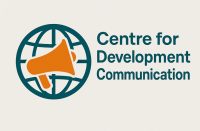As part of our Indigenous Climate Action Network (ICAN) — a climate resilience initiative that deploys Indigenous communication approaches to listen, learn, and co-create context-appropriate adaptation and mitigation actions — I visited rural communities in the FCT to engage with women farmers and hear their lived experiences.
Across Jiwa, Abaji, and Chikuku, a shared reality emerged: climate change is steadily eroding livelihoods, worsening poverty, and amplifying inequality among rural women.
In Jiwa, near Dei Dei, one farmer captured the mood:
“We are now very poor. Our vegetable farms — our only source of food, income, and school fees for our children — have been ruined by unpredictable weather. We cannot do irrigation because we don’t have the means.”
In Abaji, Mrs. Rosaline Joseph, a mother of four, spoke about the persistent drought and rising temperatures. Farming, once the community’s lifeline, has become uncertain and unrewarding.
In Chikuku, Kuje, five women farmers described how reduced rainfall and intense heat have devastated their rice, cassava, maize, and yam harvests. Some had borrowed from cooperatives to fund their farms, only to face losses they could not repay.
“We recorded huge losses again this year,” one woman told me. “It’s the changing weather patterns. We don’t know how to fight it.”
For these women, farming is not just an occupation — it is the only viable economic path. With dwindling yields and no alternatives, poverty is deepening. Some even reported rising domestic tensions and violence, as economic strain begins to fracture family structures.
For the past three years, the Centre for Development Communication (CDC) — where I serve as Director — has worked to co-create climate resilience solutions with rural farmers. Our mission is clear: empower citizens with knowledge to demand climate justice, embrace local adaptation measures, and advocate for an equitable and sustainable future.
When rural communities understand the implications of climate change, they don’t just adapt — they rise to demand systems that support their resilience.
— Audu Liberty Oseni, Director, Centre for Development Communication.
